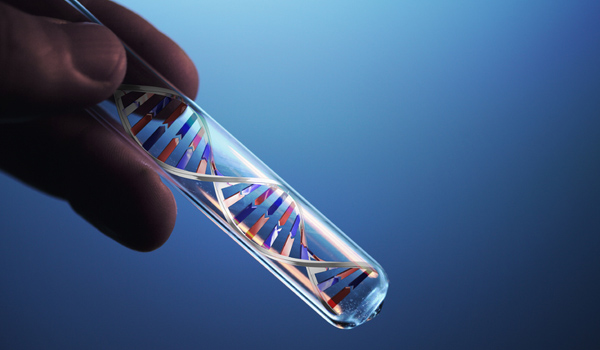Gene Mutation Linked to Common Cause of Hysterectomies

Researchers have identified a genetic mutation that may contribute to the formation of benign uterine tumors called fibroids. About 60 percent of women over age 45 develop fibroids, and they are the most common reason hysterectomies are performed in the U.S. The mutation was found in more than 70 percent of the tumors studied.
Despite the fact that fibroids are so common, little is known about the mechanisms that drive tumor formation, said study researcher Dr. Lauri Aaltonen, a professor of medical genetics at the University of Helsinki in Finland.
"We have identified an aberrant driver mutation which is important in most [uterine fibroids ]," Aaltonen said.
Future research should investigate exactly how this mutation leads to uterine fibroids. Eventually, researchers could develop a drug that would target this process as a way of treating uterine fibroids. However, the researchers emphasized, such a therapy is many years away.
The study will be published tomorrow (Aug. 26) in the journal Science.
The genetics of fibroids
About half of women with fibroids experience symptoms such as pelvic pain, heavy menstrual bleeding or frequent urination, according to the Mayo Clinic. In 2005, there were 200,000 hysterectomies in the United States in which fibroids were found during the surgery, Aaltonen said. The tumors may also cause infertility.
Get the world’s most fascinating discoveries delivered straight to your inbox.
Aaltonen and colleagues analyzed the genes of 225 uterine fibroids removed from 80 patients. They found a mutation in a gene called MED12 in 159 of the fibroids (70.7 percent).
MED12 plays a role in the process that turns genes into proteins. The mutation in MED12 may cause changes in the way genes are expressed in the smooth muscle of the uterus, Aaltonen said.
The prevalence of this mutation in the fibroid tumors is "striking," said Cynthia Morton, research director of the Center for Uterine Fibroids at Brigham and Women's Hospital in Boston, who was not involved in this study.
"This gene must play some role in the life of the tumor," Morton said. However, it's still unclear how, or even if, this mutation leads to fibroid formation, Morton said. This needs to be elucidated by further studies, she said.
Study diversity
Identifying the genes in fibroids and understanding what turns these genes on is critical to the development of treatments for this condition, said Dr. Elizabeth Stewart, a professor of obstetrics and gynecology who researches fibroids at the Mayo Clinic in Rochester, Minn.
"If we can understand what the critical steps are in creating the fibroids, that may open up novel treatment mechanisms," or ways to prevent fibroids, Stewart said.
However, the new study did not provide information on the demographics of the women studied, Stewart said. The samples were taken from a hospital in Helsinki, "so there is likely limited racial and ethnic heterogeneity of the participants," she said.
Researchers should examine the tumors in a diverse population. Women of African descent are the most likely to get uterine fibroids, Stewart said.
"The more diverse the population of women that were tested in this study, the more likely [it] is that it is going to be an important gene," Stewart said.
Pass it on: A genetic mutation may play a role in 70 percent of uterine fibroid tumors.
- 7 Cancers You Can Ward Off with Exercise
- 11 Big Fat Pregnancy Myths
- Uterine Fibroids: Symptoms, Diagnosis and Treatment
Follow MyHealthNewsDaily staff writer Rachael Rettner on Twitter @RachaelRettner. Find us on Facebook.

Rachael is a Live Science contributor, and was a former channel editor and senior writer for Live Science between 2010 and 2022. She has a master's degree in journalism from New York University's Science, Health and Environmental Reporting Program. She also holds a B.S. in molecular biology and an M.S. in biology from the University of California, San Diego. Her work has appeared in Scienceline, The Washington Post and Scientific American.
 Live Science Plus
Live Science Plus





